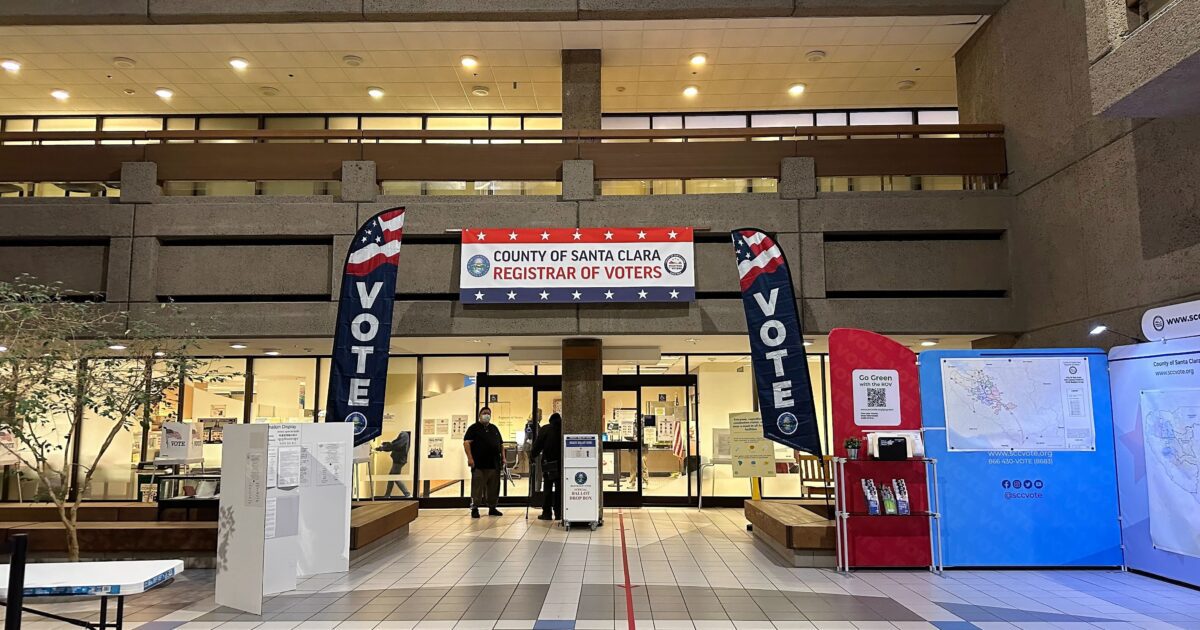The Santa Clara County assessor position, which was held by the same public official for 30 years prior to his retirement in July, is a showdown between two accomplished minority women. That much became clear during the Oct. 7 candidate forum hosted by the League of Women Voters at Cupertino’s Quinlan Community Center.
All four candidates — Bryan Do, Rishi Kumar, Yan Zhao and Neysa Fligor — showed up. They answered a dozen pointed questions, seeking to distinguish themselves for the little known but high stakes role.
The evening started with the candidates laying out their qualifications. Do cited his experience on the East Side Union High School District Board. Kumar, a former Saratoga city councilmember, highlighted his support for Proposition 13 and opposition to Measure A. The real exchange, however, took place between Zhao and Fligor.
Zhao, a Saratoga councilmember and two-term mayor, noted that she is the only state-licensed appraiser in the race, with more than 1,000 hours of fieldwork. Fligor, Los Altos vice mayor and assistant assessor, countered only she holds the legally required property-tax certification. Zhao shot back the certification is available only to those working in the Assessor’s Office, which more than 200 employees hold.
Throughout the evening, the insider-versus-outsiders theme surfaced repeatedly. When asked about the more than 700 days it takes to resolve assessment appeals, both Zhao and Do said that was why they were running. Kumar called the delay “absolutely ridiculous.” Fligor, meanwhile, explained the process was “quasi-judicial” and hence complex, but she was working to make improvements.
Public schools have long been frustrated about not receiving accurate revenue forecasts. Zhao noted $140 billion in property value is tied up in appeals, arguing that reducing the backlog would make funding more predictable. Kumar called the situation “a colossal failure,” while Fligor responded that fluctuations are inherent to assessment and pointed to ongoing efforts such as monthly reports and quarterly meetings to increase transparency.
Technology was another focal point. The office recently signed a $30 million contract for modernization. All challengers criticized decades of neglect, suggesting the office needs not just new software but new leadership. Zhao added she was best equipped to oversee the upgrade as a computer engineer, while Fligor noted she had led the acquisition of the new system.
In closing statements, Kumar presented himself as a visionary reformer, while Do criticized the timing and cost of the special election. Fligor stressed the assessor’s office is “a highly specialized technical office” that requires experience. Zhao, speaking last, pledged transparency and accountability, citing endorsements from 10 of 15 Santa Clara County mayors, and declared, “This office shouldn’t be handed down by political insiders. It should be earned.”
This race is essentially a match between the incumbent and the challengers. Fligor, an attorney who had served in the assessor’s office in various capacities, is endorsed by retired Assessor Larry Stone. Warm and confident, she projects the assurance of someone familiar with the job.
Among the three challengers, Zhao stands out. A UC Berkeley-trained engineer, she has spent the last two years preparing for the role. She speaks with a technologist’s clarity, demonstrating not just commitment but expertise.
The assessor’s office manages the county’s financial artery. Can such responsibility be entrusted to a newcomer? On the other hand, an agency unchallenged for 30 years rarely finds the will to reform from within. Is it time for a fresh perspective?
Voters must decide. Either way, it’s noteworthy that this pivotal race is shaping up between two minority women, reflecting the county’s greatest strength: its diversity.
Victoria Zhang, Ph.D., is a retired technologist, bilingual writer and engaged community member who has served on multiple nonprofit and civic boards.

